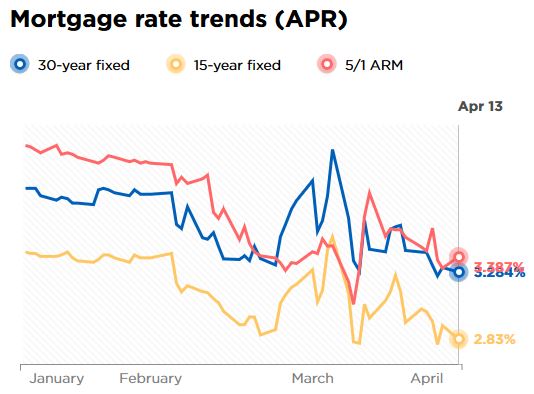Quiplash. Zeeple Dome. Trivia Murder Party. What once might have looked like just a nonsense string of words is now recognizable as a list of games being played on Zoom meetings, Google Hangouts, and Twitch streams in isolation thanks to Jackbox Games. The Chicago-based company has seen a record number of downloads of its six different party packs over the last month, providing many at a discounted price and offering tips on how to organize remote games on its blog (they even lay out how the games can be used for homeschooling). And the company has found itself in the spotlight outside of our Instagram stories thanks to initiatives like Broadway Jackbox, a weekly livestream game started by Dear Evan Hansen‘s Andrew Barth Feldman that features Broadway stars and raises money for out-of-work performers across the country through the Actors Fund. I hopped on a Google Hangout with Jackbox Games CEO Mike Bilder to check in with the company, dive into its history, and learn a little more about what goes into creating the games we’re now playing daily.
Brianna Wellen: Based on my personal experience playing so much Jackbox in the past few weeks, I can imagine this is a crazy time for you guys.
Mike Bilder: Yes, it’s been very busy for us. We’re happy about that because it brings some social interaction and some fun and levity to what is a very stressful and anxious time.
Do you have any numbers on how many more games have been downloaded in the past few weeks?
What I can tell you is just about every day as far as traffic is concerned, with games played on our servers and that type of thing, it’s equivalent to Thanksgiving. And the weekends are equivalent to New Year’s Eve. The holidays are typically the biggest time of year for us, when everyone’s back at home and together. Right now, no one is together, but they’re all together playing over video conferencing and finding a way to still socialize.
Many of the people I’ve been playing with didn’t realize Jackbox was based here. How did the company get started here?
It was known as Jellyvision [when the company started in 1995], and it was best known for a successful trivia game called You Don’t Know Jack. There were a number of versions of that on PC CD-ROM played on PCs and Macs at the time. The company ultimately fell on hard times in the early 2000s: there was a rise in home gaming with consoles, and a lot of the CD-ROM market–the bottom fell out of it. I joined in 2008 to restart the company’s gaming initiatives. In 2014 we did our first game where you use your mobile phone as a controller, that was Fibbage. It took some iteration to get to that idea, but the impetus behind it was we recognize that most people have one controller on their console–multiplayer gaming played over a console, you play over the Internet. You have your PlayStation, I have my PlayStation, and we connect and play a game together. We want to make party games, social games that happen in the same room, that make social interaction occur and make laughter and levity occur.
So the games that everyone is playing right now are actually fairly new to the whole company’s history.
Yes, but they’re kind of still built on the DNA of what the original You Don’t Know Jack is about, which is bringing people together. Back then it was three people had to gather around a keyboard and they each had a button to buzz in. There was interaction with the game: it was talking and would talk with you and there were jokes and irreverence and humor, so the same kind of DNA of what that [intellectual property] was is definitely in all the games and the direction for creativity that we put into all our games.
What is the process of coming up with and creating these games?
We’ve got a very, very talented staff. We employ full-time and some contract writers; a lot of them have cut their teeth in the Chicago comedy scene, so Second City, iO–they’re comedy writers at heart. Anyone at the company can pitch games. At this point, we’ve done this kind of annual cycle: we ship the party pack in October and then we immediately start concepting and pitching and prototyping internally to figure out what the games will be in the next year’s pack. It’s a very open process.
We’ll help assign teams or resources to a concept if it gets some traction, so we want to build a digital prototype of it. There’s a lot of paper-and-pencil testing where we can, and then sometimes you have to make a digital prototype based on the function of the game. Then those are evaluated and we have a green-light committee and a process where we go through approving and disapproving games. It’s a very fun process, it happens very quickly, but it’s neat because, like I said, a lot of people have opportunities to pitch, and I think that’s what keeps it fresh. We’ve done 30 games now over the last five years or so, and you can easily fall into a rut of, “Ah, it’s kind of the same game with just a different coat of paint.” We always try to push the envelope where we can.
[embedded content]
Are there any rejected games that you still love or ones that get pitched over and over again until they finally make it through?
There’s both. There are a few internally that I really like that just aren’t quite ready for prime time, and I’m hoping in coming years they’ll get there. We have a few games as well that actually have that path. If you’ve played Fakin’ It, that’s the hidden-identity game where you have to be the faker and try to blend in, then we have another game in a similar tone called Push the Button, which is another hidden-identity game that’s more strategic, a bit more like Werewolf or Secret Hitler, those kind of games. But both of those were very challenging to crack in a digital form. We knew we wanted to make these kinds of games because we love playing games like that, but Fakin’ It was pitched for two years and Push the Button was pitched for almost three years before it was finally green-lit.
It feels like the Chicago gaming community, both people playing the games and people creating them, has really grown in the past ten years. What have you noticed in that time?
It used to be more large established companies. We had Midway Games, they did a lot of coin-op, they did a lot of consoles, we had EA Chicago for a while. Neither of those kinds of big entities exists anymore, but out of the kind of disruption of them going away, a lot of people formed companies or built up teams. So there is still a very vibrant community in Chicago of game development. No one is a hub of big publishers, but there’s a lot of little people. It’s a neat community.
What’s happening now is affecting a lot of businesses very differently and you guys are obviously benefiting from it. How has this affected your staff and how does that change things in the future?
We have brought on a number of temporary workers in the last three weeks just to handle customer service tickets–we’ve had this influx of new customers that just kind of happened overnight–so that has pushed some efforts into other areas for us where we’ve had to staff up. So that’s one good thing that’s come out of this, we’ve been able to hire people. How it changes in the long-term, I really don’t know. Eventually things will settle down when the world gets back to normal. What that means for us moving forward as far as our customer base and our usage, I don’t know, I suspect it will decline as the world goes back to work, but I do think it’s leveled up from where we were before. I think we’re fortunate for that and we’re happy to have new people in our ecosystem wanting to play our games. v
Read More






















Leave a comment